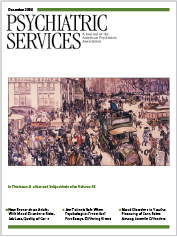Happy Baby
This novel's dust jacket reports that the author was "a Ward of the State of Illinois from age thirteen to eighteen." So when exactly the same fate befalls the narrator, one suspects that the book is largely autobiographical. This makes it harder to dismiss as fanciful or vestigial the horrendous abuses described within the juvenile justice and welfare systems: regulations that push a nonoffending, nonviolent child into more punitive and restrictive settings; staff who ignore, abuse, and even kill children; one staff member who repeatedly rapes the protagonist; facilities that are essentially prisons, with just as much violence and drugs, but less safety; and cases decided by lawyers, judges, and caseworkers who don't bother to learn anything about the children, or even let them into the courtroom. Yet while this material was eye opening and not "just fiction," the book does not expose a globally deficient system, and its sketch of the system's workings seems at times overgeneralized. The author conveys personal suffering, but he is no Upton Sinclair. I wondered how my reading of the book would have been altered had I not been given the author's history.
The novel's not-so-tacit premise is that the system creates monsters or masochists. "We're like savages," the teenage narrator says of his comrades. Later he and his girlfriend, having been abused, become stuck, depending on people to beat them up in order to experience erotic pleasure. Something about this connection seems implausible—not the behavior itself, but the simplified calculus that relates past abuse with present desire. It lacks psychological depth and complexity.
The big problem with making thoughtful temporal connections is that the novel is told in reverse, starting with the narrator's return to Chicago as an adult and working backwards to when he was in the fifth grade. Some of the past is revealed early, but, of course, none of the book's previous episodes can be remembered later—because that's the future! It is all written in the present tense, but until the last chapter the retrospective adult seems to narrate, which makes for sometimes awkward reading. Maybe therapy works backwards like that, starting recently and returning to childhood, but one hopes that even in regression we acknowledge our present selves. For me, the technique was simply annoying, and I would have turned pages more eagerly if the chronotope had been upright.
There is a lot of masochistic sexual material in this novel, but most of it reads like a shop manual. I can only guess that people who frequent dominatrixes don't routinely use the words "penis" and "vagina" to describe their activities, as the narrator does. The author's Web site (www. stephenelliott.com, posted in the "About the Author" section at the back of the book) has no problems finding the appropriate vernacular, including in conversations with a real dominatrix about Republican clients. The site's commentary about the Republican convention seemed more trenchant and entertaining, and probably more socially relevant, than this novel.
Dr. Thielke is a fourth-year resident in psychiatry at the University of Washington in Seattle.



